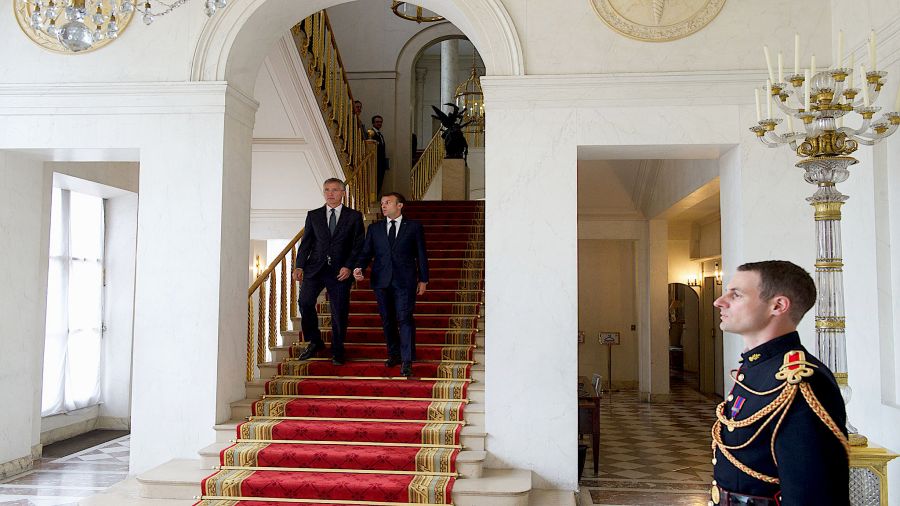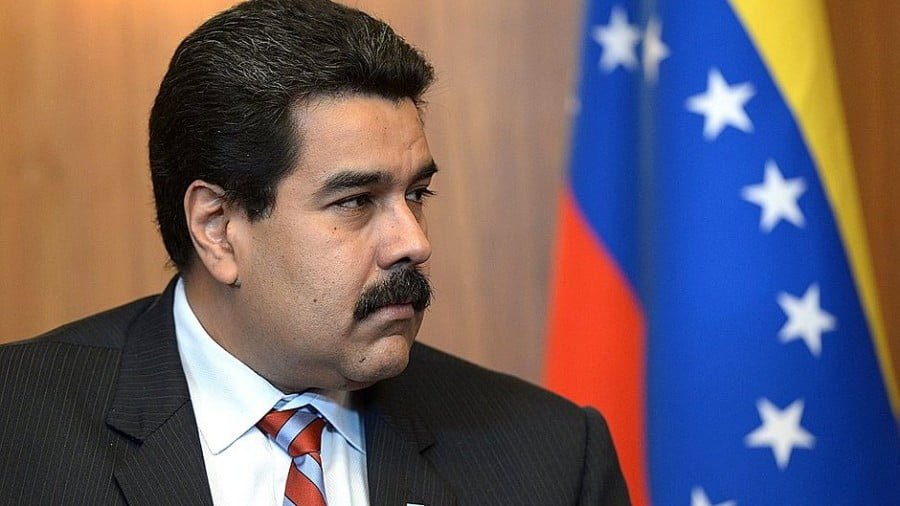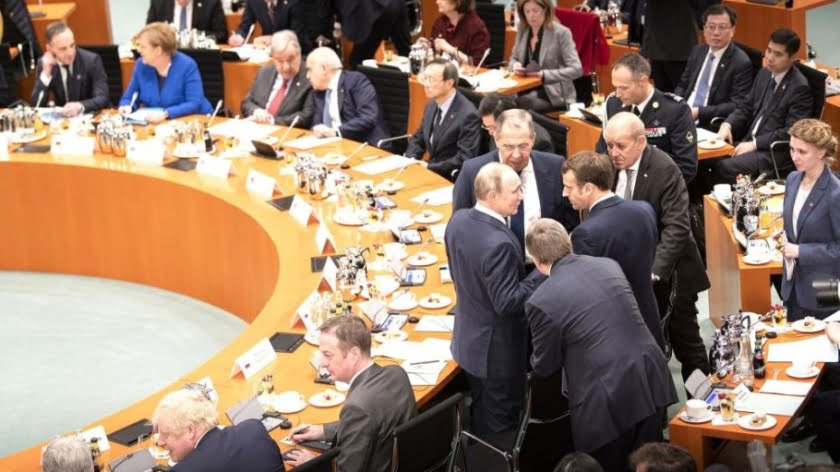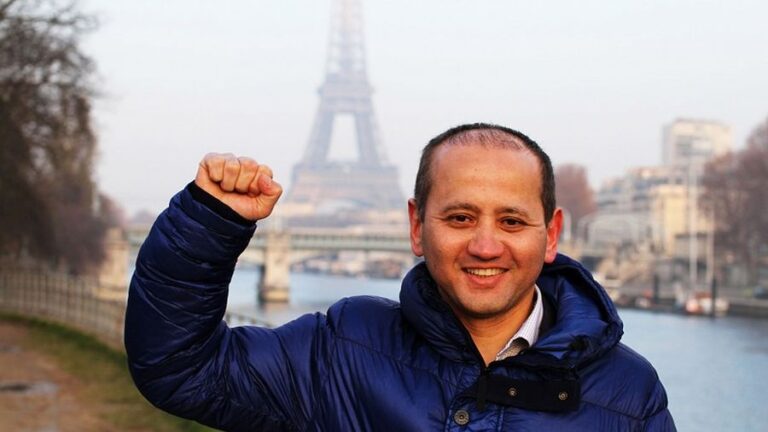Europe’s Fate
If Emmanuel Macron got one thing done above all others during his recent summit with Chinese President Xi Jinping in Beijing, it was to put the question of Europe’s place in the global order before a lot of people who would rather not think about it.
The French president, as is his habit, once again questioned Europe’s status in the Atlantic alliance, notably in his now-famous protest that Europeans cannot allow themselves to be “vassals” of the United States. “Strategic autonomy” must be the Continent’s aspiration, Macron asserted for the umpteenth time.
Suddenly, the future of the Continent is squarely on the table.
Of all the responses to Macron’s remarks, and there have been very many, those of Yanis Varoufakis are the most explosive I have seen.
The noted economist, who served as Greece’s finance minister when Athens resisted Brussels and Frankfurt in 2015, recounted Europe’s old aspiration to stand as a “third pole” between the U.S. and the Soviet Union during the Cold War. But he went on to assert — forcefully is not the half of it — that the last time strategic autonomy was anything more than a hollow dream was when Paris and Berlin declined to participate in George W. Bush’s invasion of Iraq in 2003.
“It’s not that the European Union is a vassal to the United States,” Varoufakis remarked after Macron returned to Paris. “It is worse than a vassal. Vassals had a degree of autonomy under feudalism. We are serfs. We are not even serfs, who had certain rights under feudalism.”
I understand Varoufakis’ point. Europe’s capitalist oligarchs — his term —have too great an interest in U.S. hegemony for the structure of power to change.
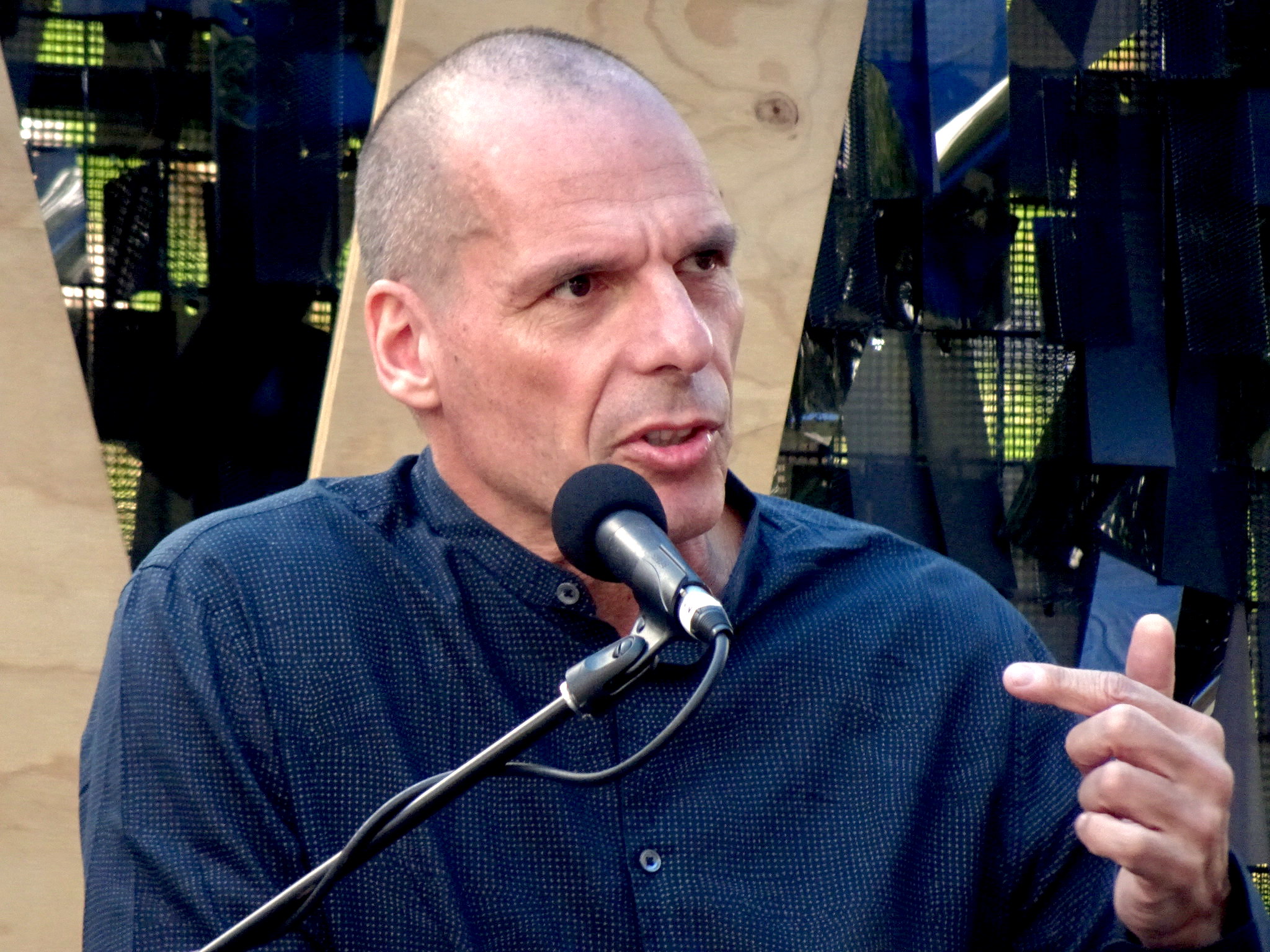
But I think Varoufakis, for whom I have the greatest respect, missed a couple of points. One, all power structures are dynamic: There is no such thing as stasis in politics. Two, we have to think of Europe today in terms of a destiny that is far more compelling than the power hierarchies of any given period.
Let’s call this a third miss: Varoufakis also neglected to consider the evident decline of American power in our time.
Europe’s future looks different when we consider these factors. I addressed them to a European audience gathered in Switzerland at roughly the same time Varoufakis was recorded for DiEMtv.Consortium News made that video available two weeks ago. It can be viewed here.
What follows is an edited version of my remarks in Switzerland, delivered on April 12. The gathering was sponsored by a publishing cooperative that brings out a journal in English (Current Concerns), German (Zeit–Fragen), and French (Horizons et débats).
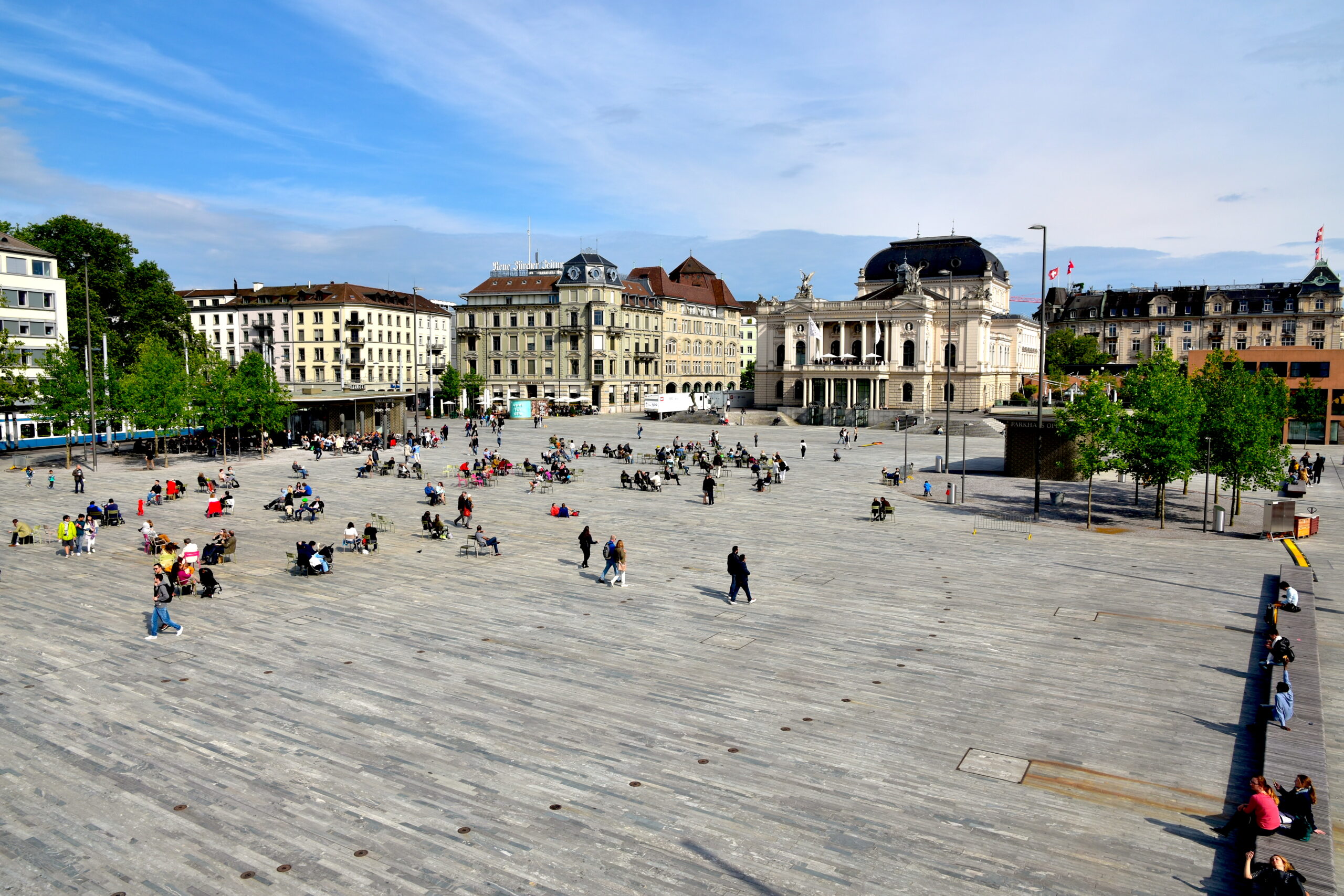
China, Eurasia & Europe’s Destiny
My topic today can be described many ways. A writer of newspaper headlines might settle on “China’s great leap,” or “China and the emerging world order,” or “China and ‘the new world order,’” or “China, the Eurasian landmass, and Europe’s destiny.”
I think what China’s recent emergence — not just as an economic power but as a diplomatic power — will mean for Europe is the topic I most want to explore. “How do we adjust to this ‘new world order?’” I was asked as I prepared to fly to Zurich. “In Europe we don’t realize what is going on.”
And there’s our headline: “What is going on?”
Let me begin with three documents the Chinese Foreign Ministry made public in February, not quite two months ago. As I wrote at the time, there seems little question that there was a lot of design in the publication of these documents.
They were issued over the course of five days, but I think they are intended to be read as one, and — very important — in the order they were made public.
I assign this design to Wang Yi, China’s top foreign affairs official, though not formally foreign minister. Wang has emerged over the past couple of years as an intelligent, serious, first-rank statesman, and goodness knows how few of these we have these days.
Three Documents
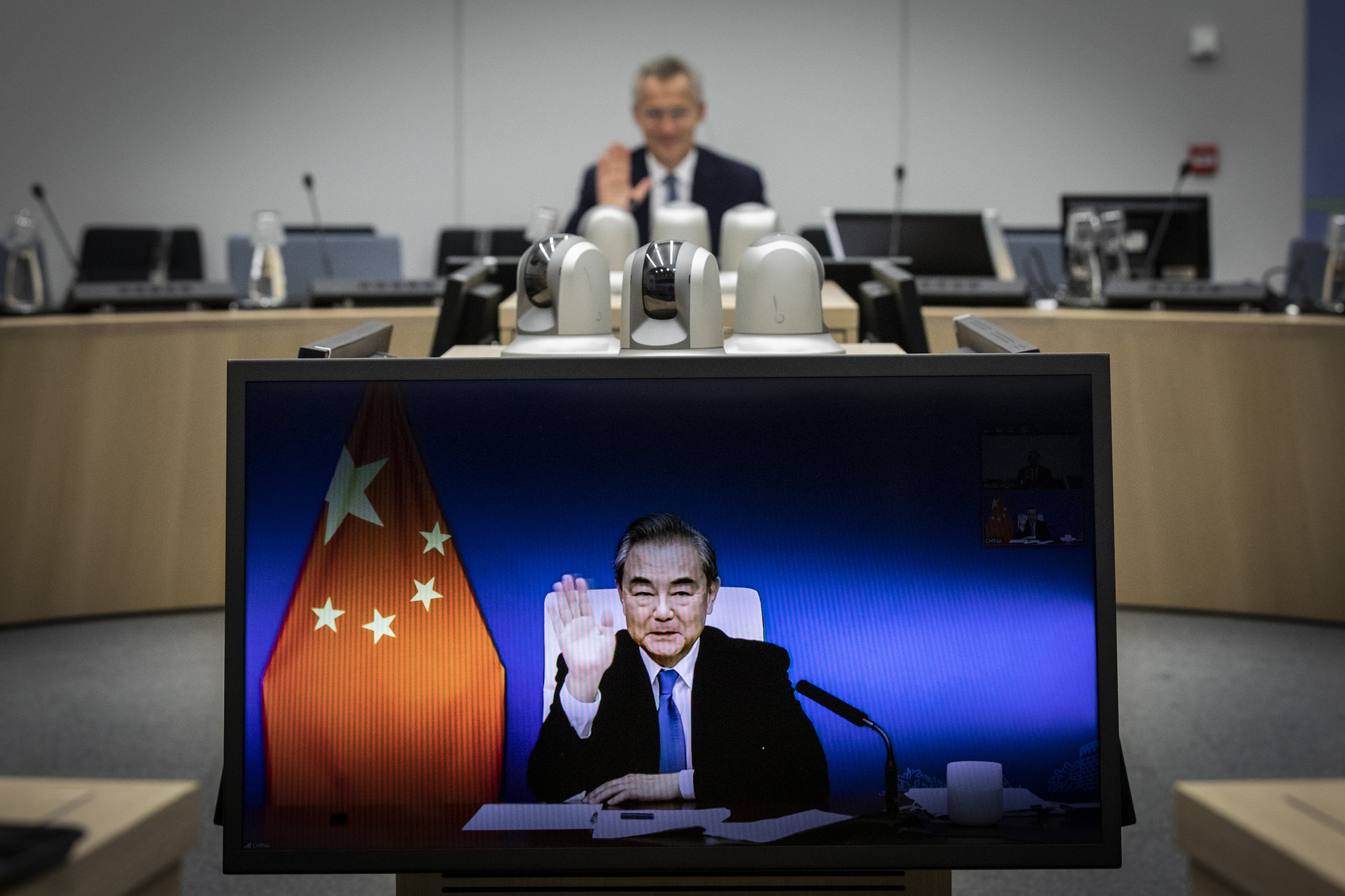
The first of the Foreign Ministry’s communiqués, made public on Feb. 20, is a sharp, harsh attack on America’s conduct abroad for the whole of the postwar era. It is titled “U.S. Hegemony and Its Perils.”
“Since becoming the world’s most powerful country after the two world wars and the Cold War,” it begins, “the United States has acted more boldly to interfere in the internal affairs of other countries, pursue, maintain, and abuse hegemony, advance subversion and infiltration, and willfully wage wars, bringing harm to the international community.”
What follows is 4,000 words of historically informed vitriol. There is even a mention of the Monroe Doctrine, as the Chinese analyze the past two centuries of America’s mistreatment and exploitation of Latin America and the Caribbean.
One day later the Foreign Ministry issued “The Global Security Initiative Concept Paper.” This is a 180–degree turn in tone from the encyclopedic critique of U.S. hegemony. Beijing now turns its attention to constructive contributions to a new world order. If the anti-imperial paper looked back, the global security document looks resolutely forward.
This is from the third paragraph of the introductory section:
“This is an era rife with challenges. It is also one brimming with hope. We are convinced that the historical trends of peace, development and win-win cooperation are unstoppable. Upholding world peace and security and promoting global development and prosperity should be the common pursuit of all countries.”
Three days after putting out “Global Security,” the ministry made public the People’s Republic’s views on the Ukraine crisis — the “peace plan,” which is a peace plan only in the minds of American officials and American journalists.
Wang Yi first mentioned this document at the Munich Security Conference a short time earlier.
It is called “China’s Position on the Political Settlement of the Ukraine Crisis,” and that is all it is — a statement of China’s position. It begins, “Universally recognized international law, including the purposes and principles of the United Nations Charter, must be strictly observed.”
This is wholly in keeping with numerous other statements Beijing has made over the past year. The ministry’s evident intent is to apply the principle to the specific case of Ukraine. It includes 12 points, ranging from a ceasefire to negotiations, to a reconstruction program.
Beijing’s purpose is not to suggest what to do about Mariupol or Bakhmut or where postwar lines should be drawn on maps. That would amount to the kind of interference in others’ affairs China has stood against since the 1949 Revolution. It is to state where Beijing stands on Ukraine. Full stop.
As I mentioned just earlier, I think we should read these documents together and in the order in which they were published. If we read them in this manner, it does not seem too difficult to discern Wang Yi’s design. They are more, in other words, than the sum of their parts.
Saudi-Iranian Accord
Three weeks after the Foreign Ministry made these documents public, Wang surprised the world when he sponsored the stunning accord the Saudis and Iranians signed in Beijing, normalizing relations after many years of animosity —an enmity that defined the Middle East in many ways.
And since then, of course, we’ve seen the Xi–Putin summit, a three-day affair [in Moscow, March 20–22] that is probably the most important, or at least among the most important of the 40 meetings the two leaders have had as national leaders.
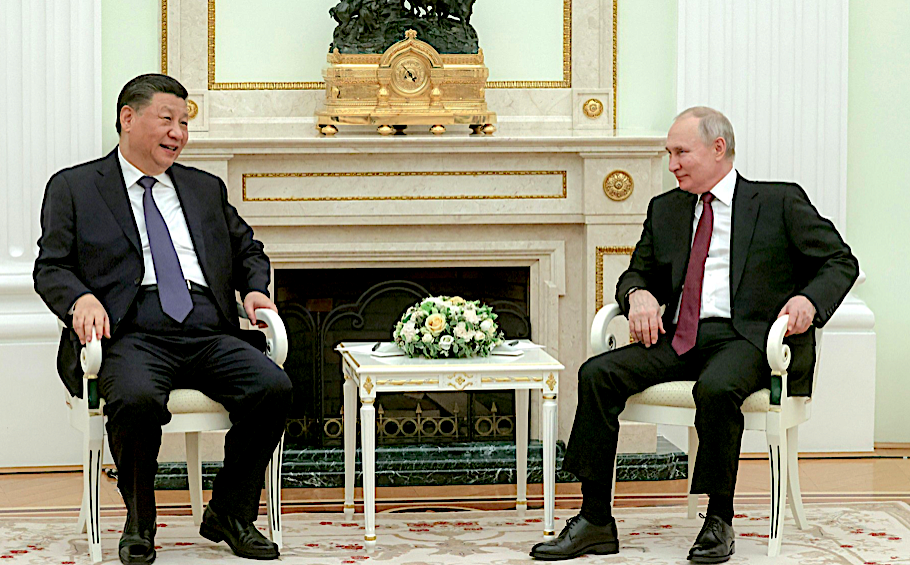
Wang, being in my reading a clever, resourceful and determined man, figured these events into his design, too, if I am correct about all this.
The first paper addresses the grave state of disorder into which American primacy has led the world — the disorder of “the rules-based order.” The second gives us the principles by which this disorder can be remedied. It is in effect an outline of the new world order China has made its priority, I would say at least for the past two years.
The third paper takes us from principles to how China will put its thinking into practice. This is how I read the three.
And a short time after Beijing makes the documents public, two events that, in one dimension, stand as examples of what China means. So, the problem, the solution in principle, the solution in practice, examples of the solution in practice.
At this point I should mention a piece published in Global Times, which can be read as a reliable reflection of official Chinese perspectives.
This piece appeared a day after Xi and Putin concluded their summit. “China’s diplomacy has pressed the ‘accelerate button,’” it begins, “and sounded the clarion call in the spring of 2023 with a series of major diplomatic activities that bring positive changes to a world in turbulence.”
In other words, China has grown very worried that the disorder of the “rules-based order” has got dangerously out of hand. And now that the Saudi–Iranian accord is signed and Xi has made China’s Ukraine case clear in Moscow, Beijing is intent on more such initiatives.
Coalescence of Non-West
At this point we have to realize, with no help whatsoever from our press and broadcasters because neither they nor the powers they serve can bear to face it, that a new world order is taking shape before our eyes.
I have long viewed parity between the West and non–West, as I put it in the columns, to be a 21stcentury imperative. This is now becoming a reality we must face, whether we have assistance or no assistance in this from our press and our public institutions.
All manner of relationships are elaborating, as I am sure you will know.
Bilaterally, there is India and Russia, South Africa and Russia, Russia and Iran, Iran and India, Iran and China, now the Saudi kingdom and Iran and the Saudis and China — this list goes on and on. Luis Ignacio Lula da Silva, Brazil’s new president, just finished a five-day visit to China.
Multilaterally, we see the expansion of organizations such as the Shanghai Cooperation Organization, the S.C.O., and the BRICS, the core group being Brazil, Russia, India, China and South Africa. We see a renewed insistence on adherence to the U.N. Charter and international law.
A few things are driving these elaborating relationships, this coalescence of the non–West. One, with the emergence of these nations as economic powers in consequence of their development, Western markets are no longer the only markets. For a long time, they were, and this was a source of power. Now they’re not. China is now the Saudis’ No. 2 market for oil, to take one of numerous examples.
Two, these nations share China’s and Russia’s alarm as to the extraordinary, increasingly violent disorder that has resulted from America’s insistence on defending its global primacy.
Three, and this is related to the second point, I detect a strong attachment to the principles of a new order as China articulates them. Although this is never mentioned, these are unmistakably based on the Five Principles Zhou Enlai first declared in his negotiations with India in 1953 and 1954 and then took to the Bandung Conference of nonaligned nations in 1955.

They are, of course, mutual respect for territorial integrity and sovereignty, non-aggression, noninterference in the internal affairs of others, equality and peaceful coexistence. Apart from the three documents I mentioned previously, the essential statement of these principles, the first outline of a new world order, lies in the “Joint Statement on International Relations Entering a New Era,” which was made public during Vladimir Putin’s summit with Xi Jinping on the eve of the Beijing Winter Olympics last year.
As I’ve asserted severally, I count this the most essential political document to be advanced so far in our century.
This statement, too, was very long on Zhou’s Five Principles without mentioning Zhou. (And I do not know why his name and his work are never specifically invoked.)
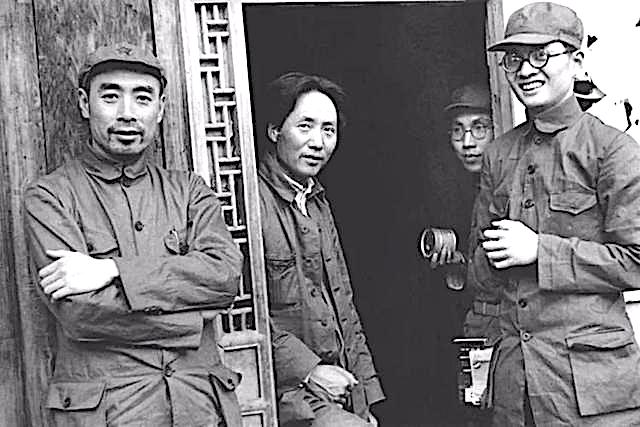
If we pause to think about it for just a moment, these principles as they are included in these documents are American foreign policy turned almost exquisitely upside down.
And here I must make a point we cannot allow ourselves to miss: It seems especially pertinent for Europeans: There is nothing anti–Western or even anti–American in what is going on in the non–West as we are considering this today. I think the non–West altogether would welcome American and European participation in the making of a new world order suited to our century.
But this cannot mean a continuation of half a millennium of Western superiority or 75 years of American hegemony. This means one thing: It is up to Americans and Europeans to decide if they will participate in this grand project or stand against it.
A Symbiosis for Europe to Consider
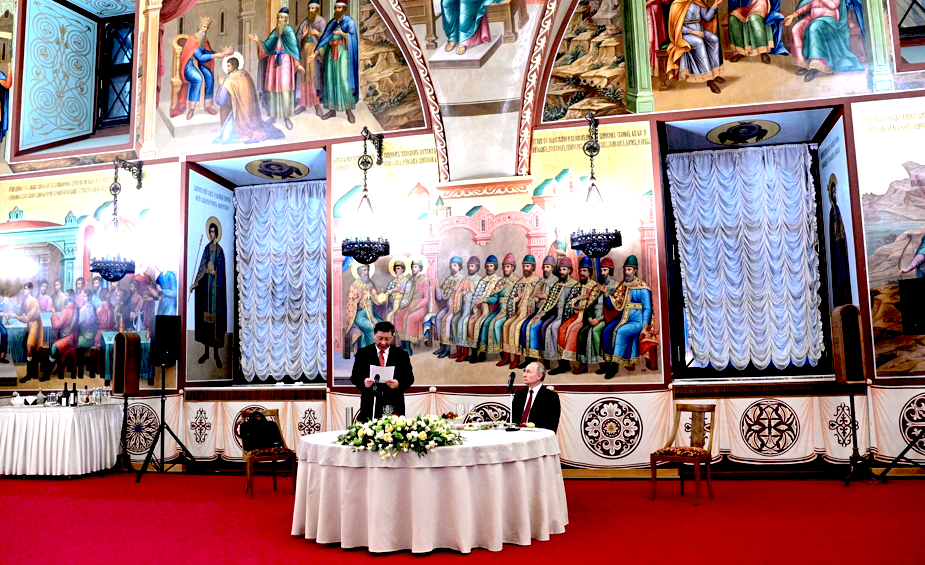
For the moment and for the foreseeable future, I would say, the nations most essential to developing a new world order are China and Russia. This is why and where Europeans, I think, need to begin learning how to think for themselves.
There is the question of size. China’s economy, depending on how you count, is either the world’s largest or second-largest. It has without question the world’s largest industrial base, and it is advancing in such fields as high technology at such a rate that the Americans can think of no way of competing with China other than to subvert its technological progress.
This is what we used to call “infra-dig” — “beneath dignity” — but there it is. This is American policy in 2023.
The Russian economy is much smaller, but it is a major producer of oil, gas, minerals, wheat and other resources. So there is a symbiosis. Bilateral trade and investment are no small part of the relationship. Putin and Xi talk about it each time they meet.
Another factor is one of perspective and geopolitical position. Moscow and Beijing are both on Washington’s enemies list, depending on the day of the week one or the other Public Enemy No. 1 or No. 2. Naturally they have a strong sense of common cause — not, once again, in defeating America or the West but of superseding American hegemony.
Halford Mackinder & Eurasia
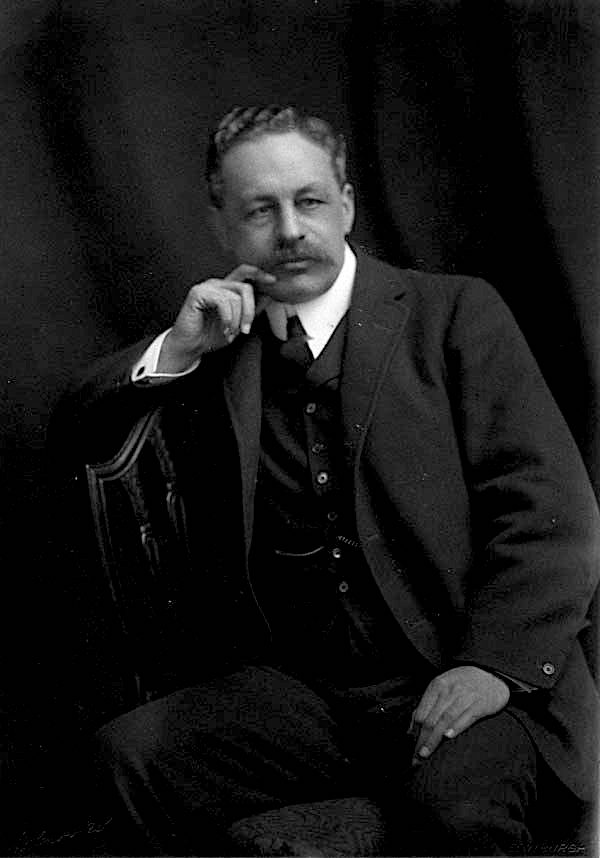
Now we come to a topic of special importance.
China and Russia account for the vast majority of the Eurasian landmass. We should understand this in the context of Beijing’s Belt and Road Initiative, for instance. Russia and the Central Asian republics, along with Iran and indeed Syria and other such nations, will be important links as China develops its plans for the BRI. And as we all know, the final terminus — or termini — of BRI are the cities and ports of Western Europe.
I do not know if Halford Mackinder has much of a readership in Europe, but we must consider his thinking now.
Mackinder was primarily a geographer, who lived from 1861 to 1947 and gave us, for better or worse, the concepts of geopolitics and geostrategy. Henry Kissinger, for better or worse, is among the many public figures to claim him as an influence.
Mackinder’s titled his most celebrated work “The Geographic Pivot of History.” This was an essay he submitted to the Royal Geographic Society in London in 1904. In it he reasoned that the world was centered on what he called the World Island, which extends from East Asia through to Europe and Africa north of the Sahara.
North and South America, along with Oceania, were given the status of Outlying Islands, while Japan and Britain were Offshore Islands. This seems a little off to me, but let us stay with the thesis.
The Heartland of the World Island, which he also called the Geographic Pivot, stretches from the Yangtze to the Volga, and is today just as Mackinder had it —the world’s most populous and richest-in-resources region.
In a later book, published in 1919, Democratic Ideals and Reality — which I have always found a curious binary — Mackinder famously had this to say:
“Who rules East Europe commands the Heartland; who rules the Heartland commands the World Island; and who commands the World Island commands the world.”
Mackinder seems to be a little “old hat” among Americans these days, but I never pay attention to fashions, and to the extent he may be dismissed as passé I suspect it is because what he had to say a little more than a century ago is too painfully evident now for the West’s big thinkers to bear.
Americans can pretend all they like that the Mackinder thesis has no contemporary pertinence, and as in so many other ways, they don’t pay so heavy a price as others for their errors. It will be far costlier and more consequential if Europeans flinch from the implications of Mackinder’s thinking.
The Great Promise of Europe’s Future
We come to the question of Europe’s fate and back to our initial question: What’s going on? And what are Europeans, supposed to do?
The question that may be obvious by now, the question of fate, is simply stated: Does Europe’s destiny lie in its Atlantic identity, or is it better understood as the western flank of the Eurasian landmass?
There is a certain “either/or” implicit in this question as I have stated it, but I don’t think the most logical answer involves any such thing. I see the great promise of Europe’s future, assuming its leaders are sensible enough to see it themselves —and this is a very sizable “if,” I realize — as lying in its position as both the eastern edge of the Atlantic world and the western edge of Eurasia.
In this way it could serve the very highest purpose as the 21st century evolves — as a sort of mediator between West and non–West. I think Havel, a person of considerable vision, thought in this way, if he did not speak and write in precisely these terms.
Reclaiming Autonomy

As to what you are supposed to do, I am not in the business of telling anyone what to do — apart from American presidents and secretaries of state, of course — but I will share some thoughts with you a little in the way the Chinese put forward their views on Ukraine — with a proper sense of distance and detachment.
I think it is vital, and well within reach, for Europe to begin cultivating—reclaiming, if you like — a sense of its autonomy in foreign policy and security that it has not known since the days of de Gaulle, Churchill, Antony Eden and other figures of their generation. I have very little time for Emmanuel Macron, to put my point mildly, but he has been right about this question many times in the past.
Setting aside Macron’s many faults, he has articulated some important positions: Europe must regain its autonomy from the U.S., Europe must take responsibility for its security, Russia must be understood as part of Europe, Europe’s destiny is inextricably involved with Russia.
The important point here is that such ideas are within Europe’s reach. They simply require leaders of greater character than Macron to advance them, develop them, win acceptance for them, and begin putting the into practice.
Europe missed a great opportunity to play such a role when it so hastily followed the U.S. into the proxy war in Ukraine. It should have insisted vigorously that Russia’s security interests be acknowledged when the reckless fools in the Biden administration insisted they could be ignored.
An enduring settlement of benefit to all sides slipped through the West’s fingers. Europe could have grasped it. This is a great shame. It is easy to see what an immense difference Europe could have made for itself, for Ukrainians who now suffer — for the course of history altogether.
In this same line, Europe still has a chance to admit the truth about NATO and act according to this truth. This alliance is outdated, it is in no way to be described as defensive, and proves now to be an incalculably destructive force.
Europe has another chance now to make the kind of difference it could make were it to determine to follow a course of its own making.
Europe’s relations with China still hang in the balance, if I read things correctly. It should make the most of this moment by declining to participate in the Sinophobia that now defines America’s policy toward the mainland.
It can accomplish this by way of diplomacy and also in the economic sphere: By embracing the BRI project, for instance, and by repudiating Washington’s ridiculous, cynical demonization of Huawei for no other reason than Huawei’s leadership in the field of 5–G technology.
Further Democratization
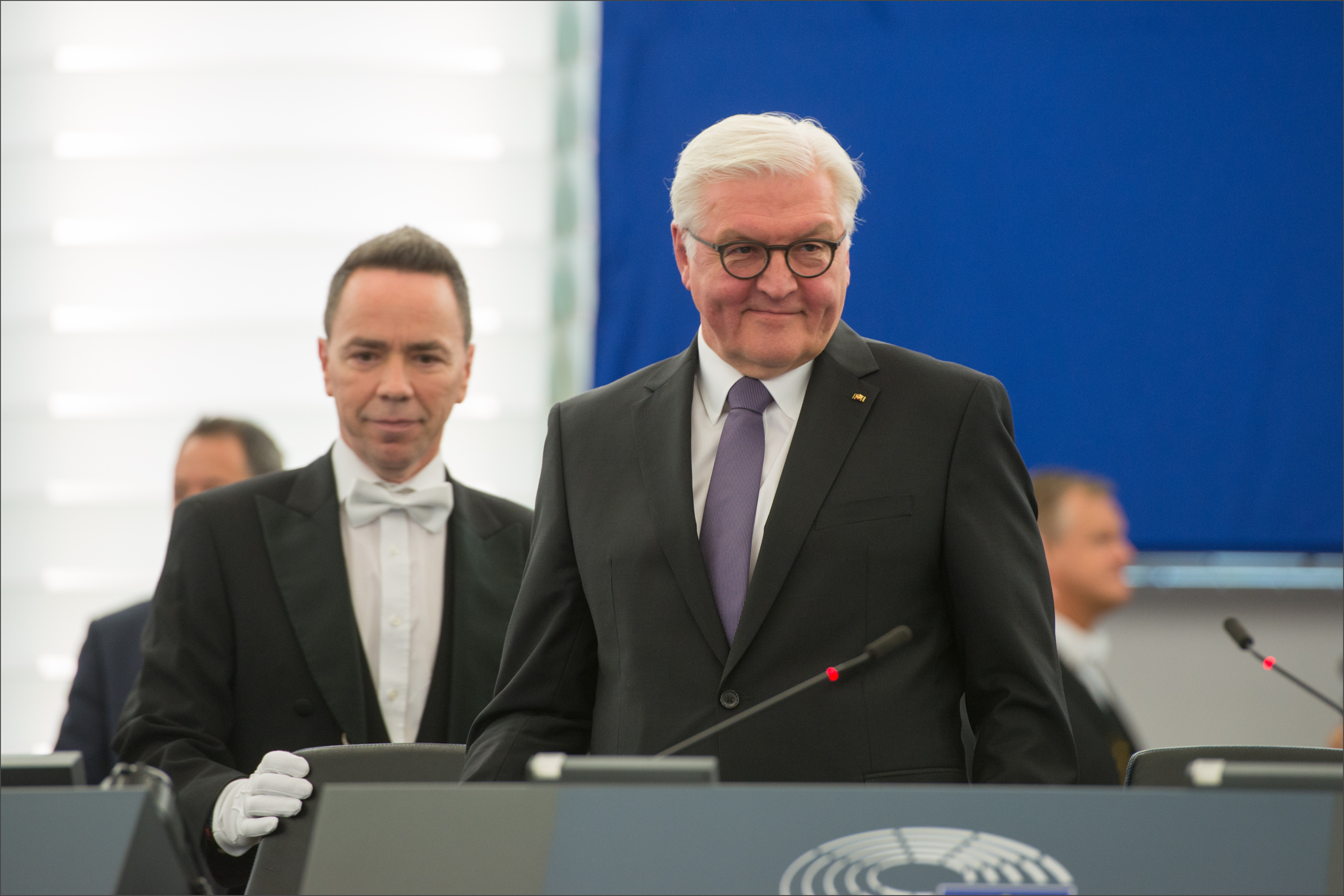
I’ll conclude with two thoughts as to Europe’s domestic arrangements. They both concern ways to advance the democratization of the Continent.
Some years ago, while he was Germany’s foreign minister, Frank-Walter Steinmeier developed quite an elaborate plan within the ministry for the renovation of German policy abroad. This was called “The 2014 Review.” It was finished in the autumn of that year, and Steinmeier presented it in the Bundestag in the early months of 2015.
There were many dimensions to this plan, but the one that seemed to me most original was Steinmeier’s proposal to subject foreign policy to direct democratic review and assent, so dismantling the traditional wall that separates foreign policy from the will and aspirations of the citizenry.
I don’t know where “The 2014 Review” sits in German discourse today. Some scholarly papers have been written on it, I discovered when I looked it up before joining you. But it seems an excellent idea.
My second concluding thought concerns the way the European Union works. To my mind the three-legged stool — administration in Brussels, finance in Frankfurt, parliamentary politics in Strasbourg — was long ago broken. As I like to ask American friends, when was the last time you read a newspaper story with a Strasbourg dateline?
To put a complex thought simply, technocrats and bankers have taken over the EU and it needs to be re-democratized.
I imagine that these kinds of ideas could make a significant difference in determining Europe’s future. It is a question of the goal but also getting to the goal.
And these are things Europe should do.

